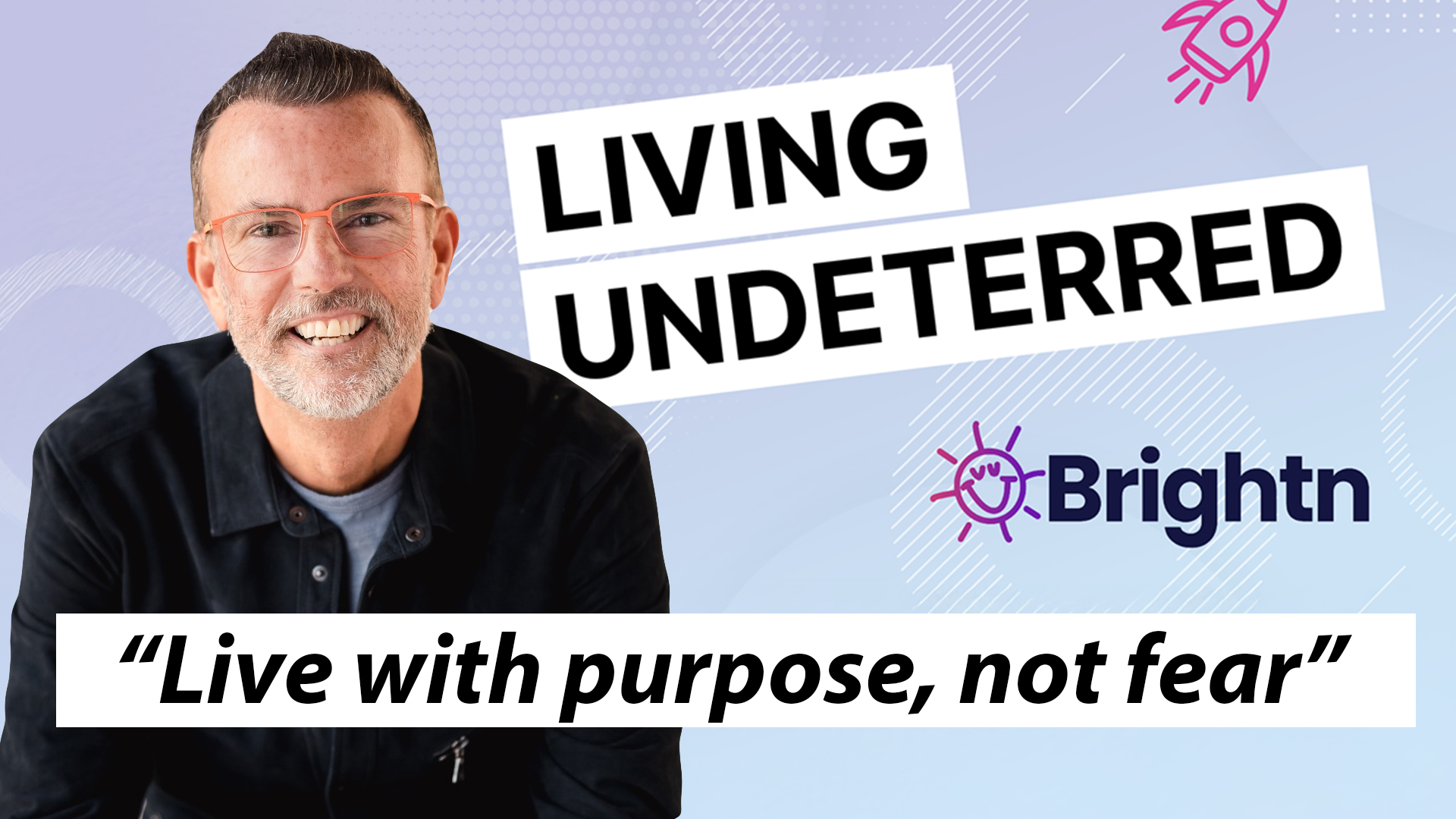
Jeffrey Johnston
January 15, 2026
•
5 min read

By Jeff Johnston, Founder of Brightn and Host of the Living Undeterred Podcast
Watch the full episode here:
Welcome to the final part of this three-part solo series. If you’ve been following along, we began with grief and purpose (The Road to Resilience), then explored the core pillars of wellness (The Intersection of Health, Wealth, and Purpose).
Now we arrive at something less tangible, but just as important: faith.
Not religion. Not dogma. But the raw, unfiltered truth of what we believe—especially when life gives us no proof, no promises, and no easy answers.
Faith, by definition, is belief without evidence. That’s always been hard for me.
I wasn’t raised religious. My parents never forced me to go to church or believe in something because they did. My dad was a logical, science-minded doctor. My mom, deeply loving and open-minded. They gave me space to question things.
And I did.
In my 20s and 30s, I considered myself an atheist. I studied Stoic philosophy, admired logic, and resisted the idea of believing in something I couldn’t see. I needed evidence. Intuition wasn’t enough.
Over time, that certainty faded. I realized I couldn’t prove there wasn’t a God any more than someone could prove there was. So I stopped clinging to labels and embraced something else: agnosticism.
I don’t know what’s out there. And I’m okay with not knowing.
When I lost Seth, then Prudence, and nearly lost myself… I started asking different questions.
What’s the meaning of all this?
Why are we here?
What happens after we die?
I still didn’t get answers. But I found something else: a deeper reverence for the mystery.
Laying on my back at night, looking at the stars, I felt it—that undeniable sense that something bigger than me exists. Not a clear vision. Not a voice from above. But a quiet sense that maybe… just maybe… there’s more.
I still don’t call that God. But I respect that others do.
One of the most harmful myths we’ve created is the idea that morality requires religion. That without belief in heaven or hell, you can’t be a good person.
I reject that.
I know I’m a good person. I’ve made mistakes—plenty—but I try every day to live with kindness, empathy, and integrity. Not because I’m afraid of punishment. But because I believe in people. In doing right by others. In treating the world with care and curiosity.
Whether you believe in eternity or think this is your one shot, the outcome should be the same: be a good human.
As I’ve gotten older, I’ve stopped needing to find the answer.
I’ve stopped looking for the perfect path.
Instead, I build the road one brick at a time.
Every day is a choice:
Left or right.
Better or bitter.
Victim or victor.
Hope or despair.
And if I make a wrong turn, I don’t start over—I just choose again. That’s what it means to live undeterred.
I believe in being kind.
I believe in loving people fully, even when they’re different from me.
I believe that AI can offer support when no one else is around.
I believe that grief can make you more compassionate.
I believe you can build something beautiful out of something heartbreaking.
I believe in showing up.
And most of all, I believe that we don’t need to have all the answers to live meaningful, connected, purpose-driven lives.
This solo series wasn’t about having it all figured out. It was about being honest about what I’ve lived through—and how I’m trying to move forward.
You don’t have to believe in God to believe in good.
You don’t need proof to live with purpose.
And you don’t need a perfect plan to make a difference.
Just keep showing up. Keep choosing better. Keep going.
That’s what faith looks like to me.
Let’s Brightn lives, together.
Learn more at brightn.app
